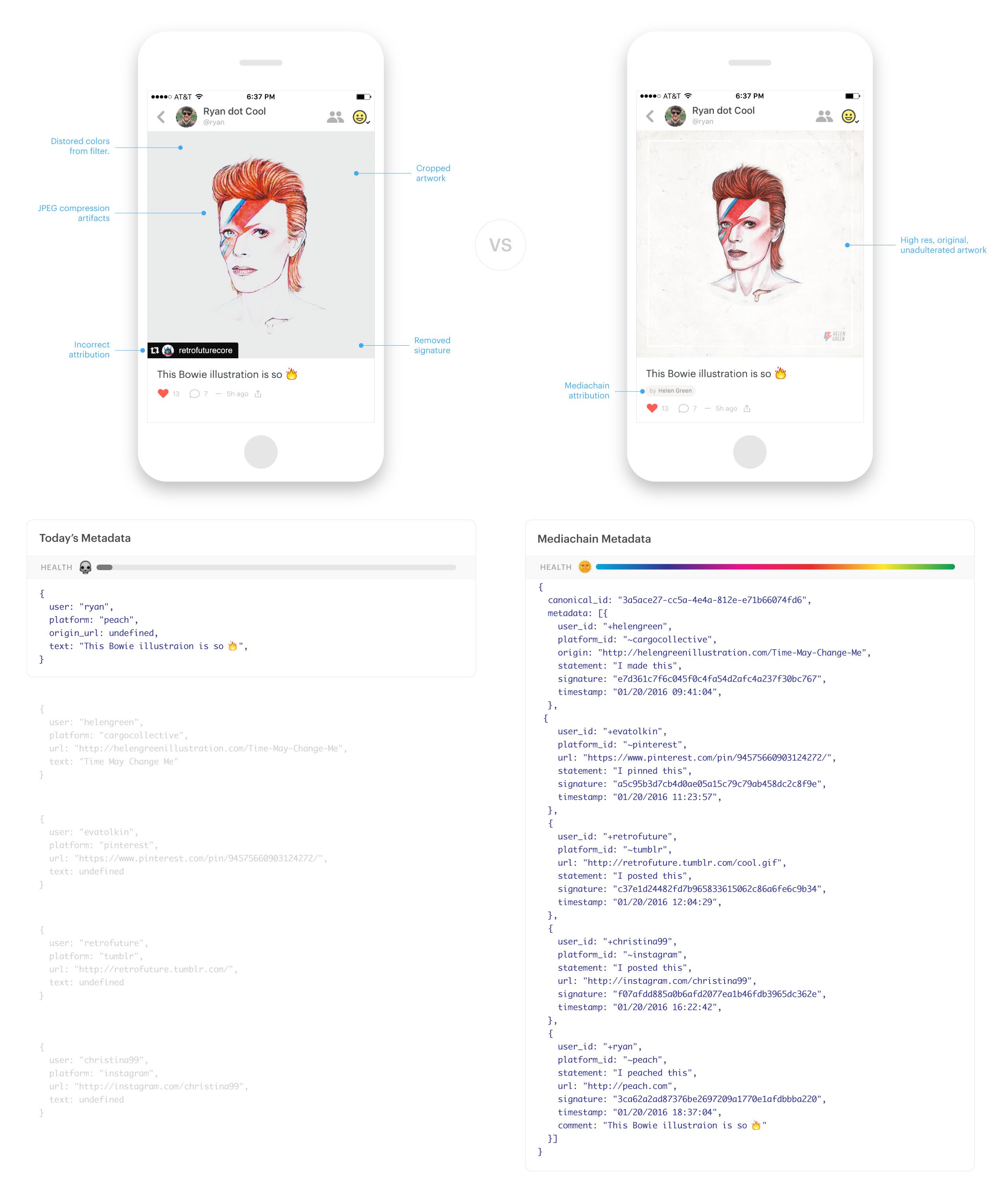It's exciting that Steem pays users to post, but what if the content someone posts isn't really theirs? Do they deserve the Steem Dollars?
Mediachain is trying to solve the problem of misattribution by building an open, universal media library that can automatically connect media to its original creator, anywhere it is shared.
The GIF That Fell to Earth is a post from the Mediachain blog that tells the story of a GIF by artist Helen Green that went viral earlier this year when David Bowie died. It chronicles how she didn't get the credit she deserved as her image was shared across the internet, and explains how Mediachain can help:
What if any image, video, or song you saw online resolved to a chain of metadata that recorded and preserved all the important information about the life of the work on the internet?
The act of seeing an image would open a gateway to an artist’s identity, the work’s history, or more works by the creator.
Attribution would always be preserved, context and history would never be lost, and the life of an image could always be visualized.
This future could look something like this:
On a platform like Steemit, an image could be a gateway to the original creator, and it would be possible to reward them with Steem directly.
So how does Mediachain work?
In short Mediachain combines an open, decentralized database (a blockchain!) with content identification technology, like Shazam or Google Reverse Image Search. This means Mediachain allows applications and developers to recognize an image based on what it looks like, or a song based on what it sounds like, and in effect, turn a unit of media into an information transmitter that is always connected to it's creator, origin and it's history, anywhere it is shared.
The Mediachain protocol is open source and I am one of the project leads. I'd love to hear your thoughts on how a protocol like Mediachain could help the community here at Steemit.

